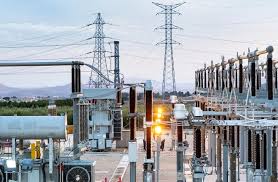Business
Farmers Set Expectations For New BOA MD
Farmers across various regions and sectors have expressed optimism following the appointment of Mr. Ayo Sotinrin as the new Managing Director of Bank of Agriculture (BOA).
They expressed their opinions in an interview with newsmen in Abuja.
The President of the Double Tree Group, Mrs. Yakubu, said Sotinrin deserves such an appointment and that their group are ready to extend their full cooperation to the new MD.
She said women farmers were open and willing to collaborate with the new bank leadership to promote food sufficiency across Nigeria.
“This is a welcome development and we pray that many positive changes will follow, particularly for women in the North Central region, where most farmers are smallholders.
“I urge the new MD to recognise the vital role women can play in agriculture and to involve them in training and sensitisation programmes.
“Women farmers need more advocacy and training to expose them to agricultural technologies that can help unlock their greater potential and skills.
“The world is changing, and many countries are adopting smart agriculture, which we hope to embrace through collaborative engagement with him”, she said.
She also called on women farmers to welcome and support the new leadership and advocated for increased awareness initiatives to encourage women’s participation in industrialised agriculture.
Also speaking, the National President of the All Farmers Association of Nigeria (AFAN), Dr. Farouk Rabiu-Mudi, expressed similar optimism on Sotinrin’s appointment.
He said the announcement had generated excitement among farmers, praising Sotinrin’s strong background in agriculture.
“His experience positions him well to understand farmers’ needs and to deliver practical solutions”, he said.
He expressed hope that the new MD’s leadership would bring positive reforms to both the bank and the wider agricultural sector.
“Farmers certainly expect easier access to loans, stronger financial support, and improved training and extension services under the new leadership.
“The ongoing capitalisation of the bank is also expected to strengthen its capacity to support farmers effectively”, he added.
The AFAN leader further urged Sotinrin to prioritise the promotion of sustainable agriculture and environmental conservation to ensure the sector’s long-term growth.
In his remarks, the State Chairman of the All Farmers Association of Nigeria (AFAN), Enugu State Chapter, Mr. Romanus Eze, raised concerns over the Bank of Agriculture’s ineffectiveness in the South East.
According to him, farmers in the region are hopeful that the new administration will develop strategies to better include the South East.
“While the bank is operational in some parts of the country, it has failed to function effectively in the South East, despite numerous meetings and discussions aimed at addressing this issue”, he said.
Eze emphasised that agriculture remains Nigeria’s most sustainable path to economic recovery, particularly as more citizens return to farming.
He urged the new MD to appoint regional directors and competent branch managers who understand local contexts.
He stressed that this would enable the Bank of Agriculture to better address region-specific challenges and operate more efficiently nationwide, including in the currently neglected South East.
Business
Abia Takes Over Electricity Supply In 8 LGAs

Business
‘Gas Shortages, Infrastructure Deficiency, Bane Of Power Sector Growth’

Business
NUPRC Blames Out Service Trunk Lines On Vandalism … As Rivers NUJ Promises Development Journalism

-

 News4 days ago
News4 days agoShettima Departs Nigeria For UN Food Summit In Ethiopia
-

 Niger Delta4 days ago
Niger Delta4 days agoPolice Nab 2 Transformer Vandals In A’Ibom
-

 News4 days ago
News4 days ago150 Women Killed In Nigeria In 2024, Group Alleges
-

 Oil & Energy4 days ago
Oil & Energy4 days agoStates Can’t Slash Electricity Tariffs – NERC
-

 Sports4 days ago
Sports4 days agoYou Are Pride To Your Generation, Tinubu Hails Falcons
-

 News4 days ago
News4 days agoNigeria Targets 2.7m MT Cereal Production Growth By 2034
-

 News4 days ago
News4 days agoRSG Inaugurates Farmers, Herders Committee
-

 Rivers4 days ago
Rivers4 days agoRivers PDP Debunks LGA Elections Forms Sale


